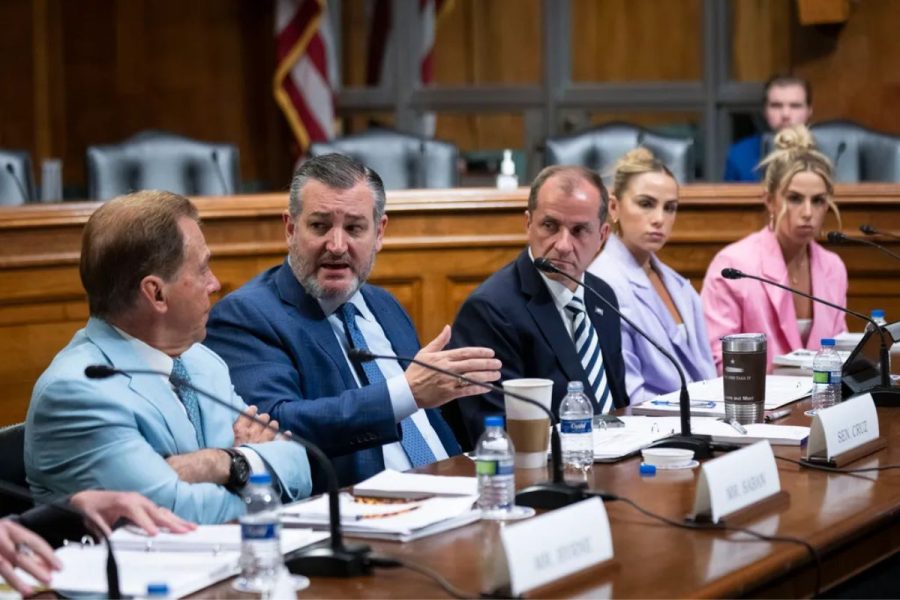Alabama Senate Bill 77 Sparks Concerns: Amidst concerns from a prominent LGBTQ+ history nonprofit in the Southern US, Alabama Senate Bill 77 has raised alarms regarding the preservation and accurate representation of queer history. The bill’s potential restrictions may hinder the portrayal of LGBTQ+ individuals, events, and contributions in historical records and educational materials, sparking apprehension about erasure and undermining efforts to celebrate and learn from the LGBTQ+ community’s past struggles and triumphs. These reservations highlight the need for vigilant monitoring and preservation of LGBTQ+ history to safeguard its visibility and significance in shaping societal narratives.
LGBTQ+ History Nonprofit Raises Concerns
Amid increasing unease, a prominent LGBTQ+ history nonprofit organization in the Southern United States has expressed reservations regarding the potential implications of Alabama Senate Bill 77 on the representation of queer history. The nonprofit, dedicated to documenting the rich tapestry of LGBTQ+ experiences in the region, fears that the bill could impose restrictions that hinder the accurate portrayal and preservation of queer history.
Alabama Senate Bill 77 has sparked concerns within the LGBTQ+ history preservation community, prompting discussions about the importance of safeguarding diverse narratives. The nonprofit’s apprehensions stem from the possibility that the bill could limit the visibility of LGBTQ+ individuals, events, and contributions in historical records and educational materials. Such restrictions could undermine efforts to celebrate and learn from the LGBTQ+ community’s past struggles and triumphs, potentially erasing significant aspects of Southern queer history.
As advocates for inclusive and thorough historical representation, the nonprofit remains vigilant in monitoring the bill’s progression and advocating for the preservation of LGBTQ+ history in Alabama and beyond.
Proposed Legislation and Opposition
The introduction of Alabama Senate Bill 77 has sparked significant opposition from advocates of LGBTQ+ history preservation, particularly concerning the potential impact on representation within state records. Opponents of the bill, such as the nonprofit Invisible Histories Project (IHP), fear that the proposed changes could hinder the inclusivity and accuracy of LGBTQ+ history preservation efforts.
- SB77 grants Governor Kay Ivey and legislative leaders the power to appoint trustees to the Alabama Department of Archives and History, raising concerns about potential biases in selecting individuals responsible for preserving historical records.
- LGBTQ+ advocacy groups like IHP worry that limiting collaborations between the Archives and organizations specializing in LGBTQ+ history could result in the erasure or downplaying of significant contributions and narratives within the state’s historical records.
- The bill’s language lacks explicit safeguards to ensure the continued representation and recognition of LGBTQ+ individuals and events in the archival materials maintained by the department.
- There is a need for transparent dialogue and collaboration between lawmakers, archival institutions, and LGBTQ+ advocates to address these concerns and uphold the thorough preservation of diverse historical perspectives.

ALSO READ: Alabama Lawmaker Aims End Nitrogen Gas Executions
Impact on LGBTQ+ History Preservation
Eliciting deep concern among LGBTQ+ advocates and historians, Alabama Senate Bill 77 has sparked fears of hindering access to critical LGBTQ+ historical materials and artifacts. Joshua Burford, co-founder and co-director of the Invisible Histories Project (IHP), stresses the essential role of such materials in illuminating the often marginalized LGBTQ+ history. Burford warns that SB77 could intentionally impede access to these important resources, hindering efforts to comprehend the intricate tapestry of Alabama’s heritage and societal makeup.
Sen. Elliott’s past legislative endeavors, exemplified by Senate Bill 1, sought to shift funding from the Archives to the University of South Alabama following a presentation on LGBTQ+ history. Burford underscores the wider implications of SB77, extending beyond Alabama’s borders. He emphasizes that the potential restrictions on LGBTQ+ historical preservation could reverberate nationally, influencing perceptions of LGBTQ+ existence and contributions across the country.
The ramifications of limiting access to LGBTQ+ historical materials extend far beyond the state’s boundaries, impacting the broader understanding of LGBTQ+ history and its significance in shaping societal narratives.
Ripple Effects and Broader Implications
Burford’s warnings about the potential nationwide impact of Alabama Senate Bill 77 highlight the broader implications of restricting access to LGBTQ+ historical materials and artifacts. The ripple effects of such restrictions extend beyond Alabama, affecting LGBTQ+ communities and historical preservation efforts across the United States. This situation prompts a deeper investigation into the following key points:
- Historical Erasure: Limiting access to LGBTQ+ history could perpetuate a cycle of erasure, hindering the understanding and acknowledgment of the LGBTQ+ community’s contributions to society.
- Censorship Concerns: The introduction of Senate Bill 10 alongside SB77 raises concerns about censorship and the suppression of diverse perspectives in libraries, potentially limiting access to important LGBTQ+ narratives.
- Community Impact: LGBTQ+ individuals may feel marginalized and disregarded when their history is restricted, impacting their sense of belonging and acceptance within society.
- Educational Implications: Restrictions on LGBTQ+ historical materials could hinder educational opportunities for students to learn about diverse perspectives and marginalized communities, limiting their understanding of social issues and historical context.

News in Brief
Alabama Senate Bill 77 Sparks Concerns for LGBTQ+ History Preservation. Amidst unease from a prominent LGBTQ+ history nonprofit, Alabama’s Senate Bill 77 raises alarms over queer history representation. The bill’s potential restrictions could hinder LGBTQ+ individuals’ portrayal in state records, undermining efforts to celebrate and learn from their past. Opponents fear erasure and advocate for vigilant monitoring to safeguard LGBTQ+ visibility.
Proposed by Sen. Chris Elliott, the bill grants authority to appoint trustees to the Alabama Department of Archives and History, prompting concerns about biased selections. LGBTQ+ advocates stress the importance of inclusive historical representation and transparent dialogue to address apprehensions and preserve diverse narratives. This highlights broader implications for LGBTQ+ communities’ recognition and understanding nationwide.

